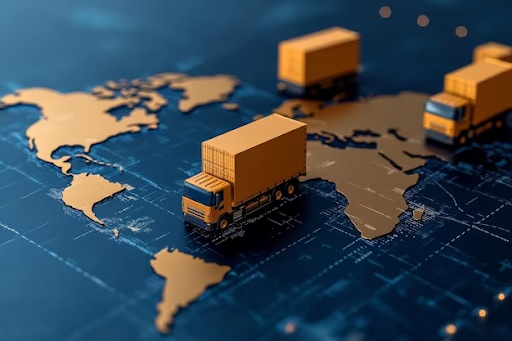International Logistics: The Backbone of Global Trade

In today’s interconnected world, international logistics plays a pivotal role in facilitating global trade. The movement of goods and services across borders is essential for the growth of economies, businesses and consumers alike. International logistics involves the planning, implementation and control of the efficient and effective movement and storage of goods, services and information from one country to another. It encompasses a wide range of activities, including transportation, warehousing, customs clearance and inventory management. As globalization continues to shape the modern economy, international logistics has become a critical factor in ensuring the smooth functioning of supply chains and the success of businesses operating on a global scale. Click on the link for more information: https://www.dhl.com/discover/en-pk
At its core, international logistics is about overcoming the challenges of distance, time and regulatory differences between countries. The logistics process begins long before the physical movement of goods takes place. It involves detailed planning and coordination to ensure that products are transported from the point of origin to the final destination in a timely and cost-effective manner. This requires collaboration between various stakeholders, including manufacturers, suppliers, transportation providers, customs authorities, and logistics service providers. The complexity of international logistics lies in the need to navigate different legal, cultural and economic environments, which can vary significantly from one country to another.
Transportation is one of the most visible aspects of international logistics and it plays a central role in the movement of goods across borders. There are several modes of transportation used in international logistics, including air, sea, rail and road. Each mode has its advantages and disadvantages, and the choice of transportation depends on factors such as the nature of the goods, the distance to be covered, the urgency of the delivery and the cost. For example, air transport is the fastest mode of transportation and is ideal for high-value or time-sensitive goods. However, it is also the most expensive. Sea transport on the other hand is more cost-effective for large volumes of goods but can take longer due to the slower speed of ships.
In addition to transportation, warehousing is another critical component of international logistics. Warehouses serve as storage facilities for goods during various stages of the supply chain, from production to distribution. In the context of international logistics, warehouses may be located in different countries or regions to facilitate the efficient movement of goods across borders. These facilities provide a secure environment for storing goods and help businesses manage inventory levels to meet customer demand. Warehouses also play a key role in the consolidation and deconsolidation of shipments, which involves combining smaller shipments into larger ones for transportation or breaking down large shipments into smaller units for distribution.
Customs clearance is one of the most challenging aspects of international logistics. Every country has its own set of regulations and requirements for the import and export of goods and navigating these regulations can be a complex and time-consuming process. Customs authorities are responsible for inspecting goods, verifying documentation and ensuring that all applicable duties and taxes are paid before goods are allowed to enter or leave a country. Failure to comply with customs regulations can result in delays, fines or even the seizure of goods. As a result, businesses must work closely with customs brokers or logistics service providers who specialize in customs clearance to ensure that their shipments are processed smoothly and efficiently.
One of the key challenges in international logistics is managing the risks associated with cross-border trade. These risks can take many forms, including geopolitical instability, natural disasters and fluctuations in currency exchange rates. For example, political unrest or economic sanctions in a particular country can disrupt supply chains and make it difficult to move goods across borders. Similarly, natural disasters such as hurricanes, earthquakes or floods can damage infrastructure and delay shipments. Currency fluctuations can also have a significant impact on the cost of international logistics, as changes in exchange rates can affect the price of transportation, goods and services. To mitigate these risks, businesses must develop contingency plans and work with logistics providers who have experience in navigating the complexities of international trade.
Technology has played a transformative role in international logistics, enabling businesses to streamline their operations and improve the efficiency of their supply chains. The use of digital tools and technologies, such as tracking systems, automated inventory management and data analytics, has made it easier for businesses to monitor the movement of goods in real time and make informed decisions. For example, tracking systems allow businesses to track the location and status of their shipments at every stage of the supply chain, providing greater visibility and control over the logistics process. Automated inventory management systems help businesses optimize their inventory levels and reduce the risk of stockouts or overstocking. Data analytics can also be used to analyze trends and patterns in international trade, helping businesses identify opportunities for cost savings and process improvements.
One of the most significant technological advancements in international logistics is the use of blockchain technology. Blockchain is a decentralized, secure digital ledger that allows businesses to record and verify transactions in a transparent and tamper-proof manner. In the context of international logistics, blockchain can be used to create a digital record of the movement of goods, providing greater transparency and traceability in the supply chain. For example, businesses can use blockchain to track the origin of raw materials, verify the authenticity of products and ensure that goods are transported in compliance with regulatory requirements. By improving transparency and reducing the risk of fraud or counterfeiting, blockchain has the potential to enhance the security and efficiency of international logistics.
Sustainability is another important consideration in international logistics. As businesses become increasingly aware of the environmental impact of their operations, there is growing pressure to adopt more sustainable practices in the logistics industry. This includes reducing the carbon footprint of transportation, minimizing waste in packaging, and optimizing supply chain processes to reduce energy consumption. Many businesses are now looking for ways to reduce their reliance on fossil fuels by using alternative modes of transportation, such as electric vehicles or rail, which have a lower environmental impact. In addition, some companies are investing in more sustainable packaging materials, such as biodegradable or recyclable materials, to reduce the amount of waste generated during the logistics process.
The global nature of international logistics means that businesses must also consider the social and ethical implications of their supply chains. This includes ensuring that workers involved in the production and transportation of goods are treated fairly and that their rights are respected. In recent years, there has been increasing scrutiny of labor practices in global supply chains, particularly in industries such as manufacturing, agriculture and textiles. Businesses are now being held accountable for ensuring that their suppliers comply with labor laws and that workers are not subjected to exploitative or unsafe working conditions. This has led to the rise of initiatives such as fair trade certification and social audits, which aim to promote ethical practices in international trade.
As businesses continue to expand their operations globally, the importance of international logistics will only continue to grow. Effective logistics management is critical to ensuring that goods are delivered to the right place, at the right time, and the right cost. By understanding the complexities of international logistics and leveraging the latest technologies and best practices, businesses can improve the efficiency of their supply chains and gain a competitive edge in the global marketplace.
In conclusion
International logistics is the backbone of global trade, enabling businesses to move goods across borders and reach customers around the world. It involves a wide range of activities, from transportation and warehousing to customs clearance and risk management. Despite the challenges posed by distance, time and regulatory differences, international logistics plays a vital role in ensuring the smooth flow of goods and services in the global economy. As technology continues to advance and businesses adopt more sustainable practices, the future of international logistics holds great promise for improving the efficiency, transparency and ethical standards of global supply chains.












